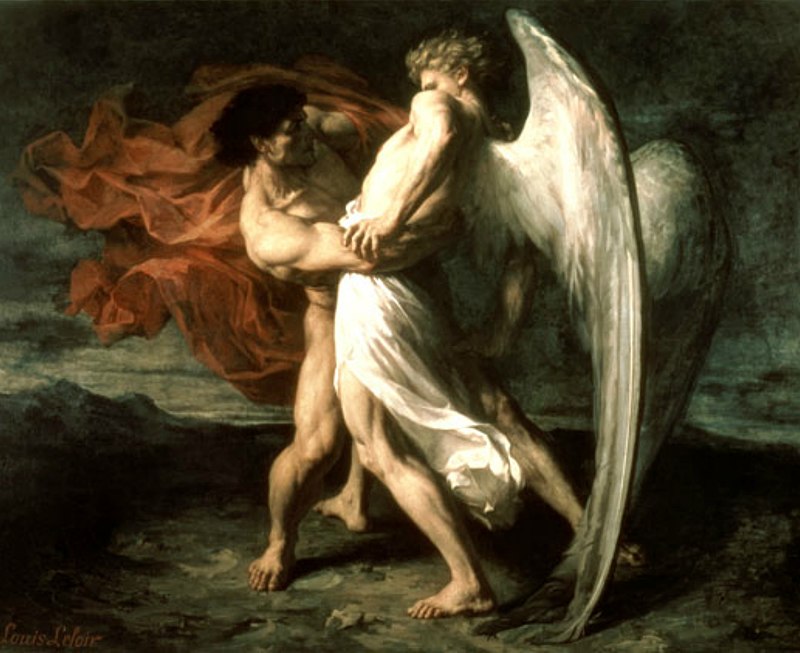Survival, Deterrence, Honor, Vengeance?

Genesis chapter 32 elaborates a dramatic naming story that aims to identify Israel’s essence and establish its destiny.
In the story, the patriarch Jacob is spending the night alone, preparing to meet his twin brother Esau, whom he has wronged in the past. Full of doubts as to what the outcome would be, he undergoes an extraordinary experience.
In one of the most baffling passages in the TaNaKh, a man, coming seemingly out of nowhere, assaults the patriarch, giving him no choice but to fight for his life.
Coming under an unwarranted attack by a man unknown to him, Jacob had no choice but to put aside all fears of inadequacy and defend himself as vigorously as possible.
The biblical narrator used the psychology of individual fear and remorse to provide a historical setting for his theological philosophy of Israel’s mission in the world.
The struggle goes on through the night with neither side overpowering the other; Jacob, however, succeeds in holding his assailant down to the point that he is forced to say:
"Let me go, for dawn is breaking." But Jacob answered, "I will not let you go unless you bless me." Said the other, "What is your name?" He replied, "Jacob." Said he, "Your name shall no longer be Jacob, but Israel, for you have striven with beings divine and human, and have prevailed."
Bereshit (Genesis) Chapter 32, verses 27-29
The name “Israel,” according to the interpretation given in this text, symbolizes struggle and triumph in the face of overwhelming odds.
Then, two chapters later, in Genesis Chapter 34, Jacob’s sons, Simeon and Levi, write one of the darkest chapters in Jewish history.
Now Dinah, the daughter whom Leah had borne to Jacob, went out to visit the daughters of the land. Shechem, son of Hamor the Hivite and chief of the country, saw her, took her, and lay with her by force. Being strongly drawn to Dinah, daughter of Jacob, and in love with the maiden, he spoke to the young woman’s heart So Shechem told his father, Hamor, "Get me this girl as a wife." Then Shechem’s father, Hamor, came out to speak to Jacob Jacob’s sons, having heard the news, were distressed and very angry because Shechem had committed an outrage in Israel by lying with Jacob’s daughter-a thing not to be done
Though Shechem’s father asks for Dinah to be given as a wife for his son, offering to provide anything that he would be asked for in exchange, “the sons of Jacob answered deceitfully.”
Only in this way, we may agree to you- if you will be like us, every male to be circumcised. Then we can give our daughters to you, and your daughters we take for ourselves, and we can settle among you and become one folk. ...and every male was circumcised
Then, when the Shechemites
Were in pain, Simeon and Levi, Dinah's brothers, took each his sword, came upon the city unmolested, and slew all the males
This is such a terrible story that one has to ask what is the purpose of keeping its memory alive. And from all places, nowhere else but in Israel’s formative literature: the TaNaKh.
There are two possible answers to this question: either the Scriptures consider Jacob’s sons laudable or remind us that even when facing the most significant threats, Jews should not behave in this way.
Until today, Jews have been debating the issue and offering arguments pro and con.
It has been argued, for instance, that only a firm conception of honor and a strong deterrence can ensure survival.
Yet, a few chapters later, Israel’s Scriptures are unequivocal in their verdict. On his deathbed, Jacob, the last of the patriarchs, withholds his blessing from Simeon and Levi, declaring them unworthy sons and successors and denying them any portion of the Promised Land.
Not surprisingly, God’s name does not appear even once in this latest story.

